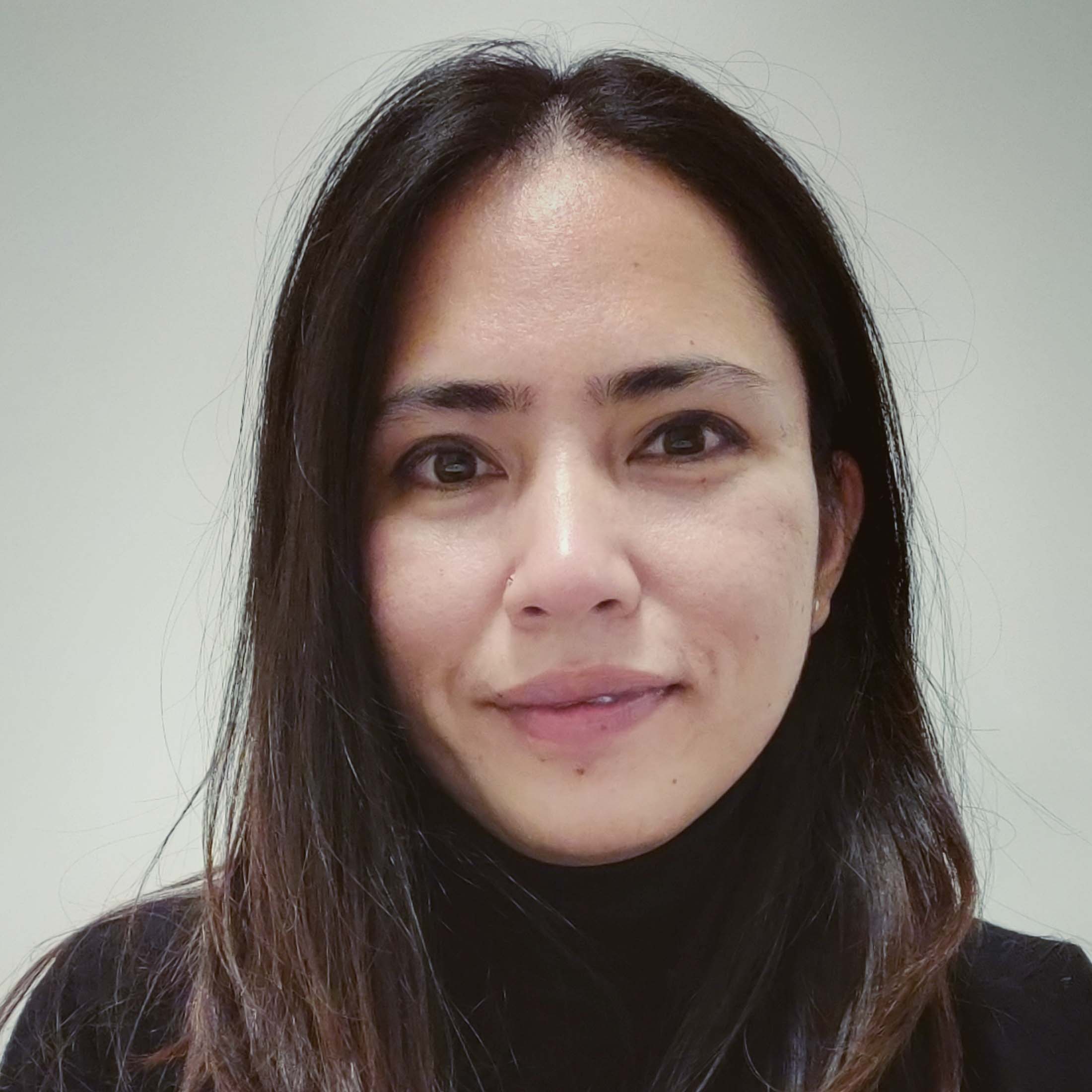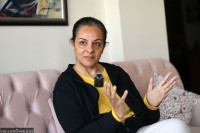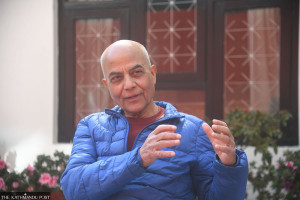Interviews
Subhash Gauchan: At Dalle, we want to be accessible to everyone
In this interview with the Post’s Alisha Sijapati, Subhash Gauchan, who returned from Florida in the US to Kathmandu in 2000, talks about how he came to start Dalle and where he’s plans to take this restaurant chain in the future. Excerpts:
Alisha Sijapati
Since returning from Florida in the US to Kathmandu in 2000, Subhash Gauchan immediately joined his father’s logistics business. But there was something missing. Gauchan had a passion for food and he had always wanted to start a restaurant. In 2004, along with a few friends, he mulled over the idea of opening up a place of his own but nothing materialised. He had to wait another eight years before he would finally debut Dalle, a restaurant that started small but has now branched out to numerous places around the Valley, buoyed by its reputation for delicious momos.
In this interview with the Post’s Alisha Sijapati, Gauchan talks about how he came to start Dalle and where he’s plans to take this restaurant chain in the future. Excerpts:
How did Dalle first start?
Dalle was in the making since 2004, but it never really came into being as I didn’t come from a hospitality background and it took a lot of planning. Initially, there was a lot of people involved in trying to create a chain restaurant, but as they say, too many cooks spoil the broth. The idea just couldn’t come to reality. In 2009, when I was on a trip to Singapore, I read Richard Branson’s autobiography where he basically says, ‘screw it, let’s do it.’ That line motivated me. With that thought, I decided to just go ahead with Dalle—what was the worst that could possibly happen?.
Like you said, you don’t come from a hospitality background. So why a restaurant?
I was eating at my friend from Darjeeling’s place one evening and his mother cooked us food that was very simple and yet had the rich flavour of dalle khursani. I believed that this food would sell well with consumers and surprisingly, it did. When I didn’t have a restaurant, my friends and I were confused about where to go for lunch. What mattered to us were price, health issues, cleanliness and hygiene. So, at Dalle, our priorities were that the restaurant should be clean and it has to be affordable. We always dreamt of a place where people from all walks of life would come to dine, from bank CEOs to college students. I think we’ve managed to accomplish that goal of ours.
When we started Dalle, we only had four items on the menu, so lots of people were skeptical about our business. They thought we were crazy taking such a huge risk, especially due to our limited menu and the fact that we were operating in the vicinity of Durbar Marg. But we always had the confidence that this could actually work for us. We are now trying to make Dalle better and improve our skills every single day.
What were the initial challenges like?
Rental space in Kathmandu is generally very pricey. Plus, there were loadshedding and water resource issues. The biggest challenge for us has been human resource as Kathmandu doesn’t have much skilled manpower. These are some of the things that the investment forum should look into and help with some sort of training and development. To operate our restaurant wasn’t particularly difficult but the challenges came when we were scaling up. We have about 10 outlets now.
In a span of eight years, you have managed to expand to 10 outlets in eight locations. How did this success come about?
In 2012, we started our first outlet in Kamaladi. We actually didn’t expect it to grow at this scale when we began. The response from customers left us overwhelmed. Currently, we have outlets in various locations around Kathmandu—Kamaladi, two at Labim Mall, Bhatbhateni, Golfutar, Jawalakhel, World Trade Center, Thamel and Chhaya Center. At Dalle, we want to keep things simple and not be too experimental. Apart from the momos, the Dalle Bowl also helped us create a strong base in the market. We want to make our food as homely as possible and not try to do anything extra.
Momo is a staple—the favourite food of Nepalis. I don’t think we did anything out of the ordinary, it’s just that we were consistent. We try to match Nepali eating habits. Of course, people are getting more cautious regarding their health and where the food has been sourced from. Thankfully, customers are returning to Dalle. At our restaurant, we have done everything in our capacity to make it comfortable and affordable and also make as kid-friendly as possible.
Every restaurant in Kathmandu sells momos. What makes yours different?
We still don’t use machines to create the dough for our momos.We have a central kitchen, where it gets wrapped in the morning and kept in the freezer. By noon, it reaches all our outlets. Machines don’t meet our standard. If you notice, our momos are pretty thin. Machines give you fatter dough.
Our momos are created with strict measures of dough and meat. It is a well thought out dish. At our Kamaladi branch, we cater to almost 17 banks and we want to keep our momos meeting friendly. We also wanted to be easy on the stomach. It’s very simple if you don’t add too many things. Our momos also sell so much because of the achaar. Initially, we had a lot of difficulties with it. Summers were the worst. Our achaars are made fresh everyday, twice a day, in morning and evening batches. Our Dalle paste is sourced from Sikkim and our Akbare from Dharan. The Achaar has to be good for any momos. We spend a lot of time and effort to ensure that it tastes good.
What have you been doing as a managing partner at Dalle to maintain your brand image?
First and foremost, to maintain a brand, all one has to care about is customer satisfaction. And so, we have been working very hard to maintain our momentum. We want to make our clients happy and the only way to do is through a limited menu. When you don’t have too many choices, you can concentrate hard on perfecting what you have. If Dalle started selling Thai or Japanese food tomorrow, the quality will never be maintained.
Also, it is important to remain visible. Hence, we participate in lot of food festivals and are available online. Our delivery partners for online food delivery are Foodmandu and Bhoj. We wanted to be more accessible to customers. We are always open to new avenues.
At Dalle, the menus are limited but the colour schemes are very specific too. Was it all thought out?
The colour scheme of our restaurant is red, and if one looks at it in a scientific way, the colour red brings the right mood to consume your food. It excites people while they eat. Even if we have limited items on our menu, apart from our momos, the Dalle Bowl and curly fries are equally famous. The pros of not having an elaborate menu is the best step we could have possibly taken, as we don’t have any particular dishes that don’t work. We sit with our chef and try to reason from a restaurant’s point of view and a client’s point of view. Once we present something, we don’t pull back. So, far we have been fairly lucky in that aspect.
There are a lot of restaurants popping in and out of the market, how do you keep up with the competition?
When we started in 2011, there wasn’t much competition, but since then there has been a 14 percent increment in restaurants around the Kathmandu Valley. At the present stage, there are only very limited established restaurants. Now, there are more options and it is very competitive. So, in this scenario, it is important to keep up with quality and be visible everywhere possible.
What are your future plans for Dalle?
This year, we plan to offer franchises. My team and I have been working very hard for the past 18 months. We have received offers to open franchises in various countries such as Singapore, Malaysia, the Netherlands, India and in the Middle East. We wanted to franchise two years ago, but we weren’t ready. We wanted to make our back end strong. So, now we have signed up with two people and are on the verge of signing with another. According to our research, there is a viable demand for 34 Dalles in Kathmandu Valley itself. In Pokhara too, we have verbally agreed but we want to make our back end even stronger before we head to another city.




 20.12°C Kathmandu
20.12°C Kathmandu



.jpg&w=200&height=120)








